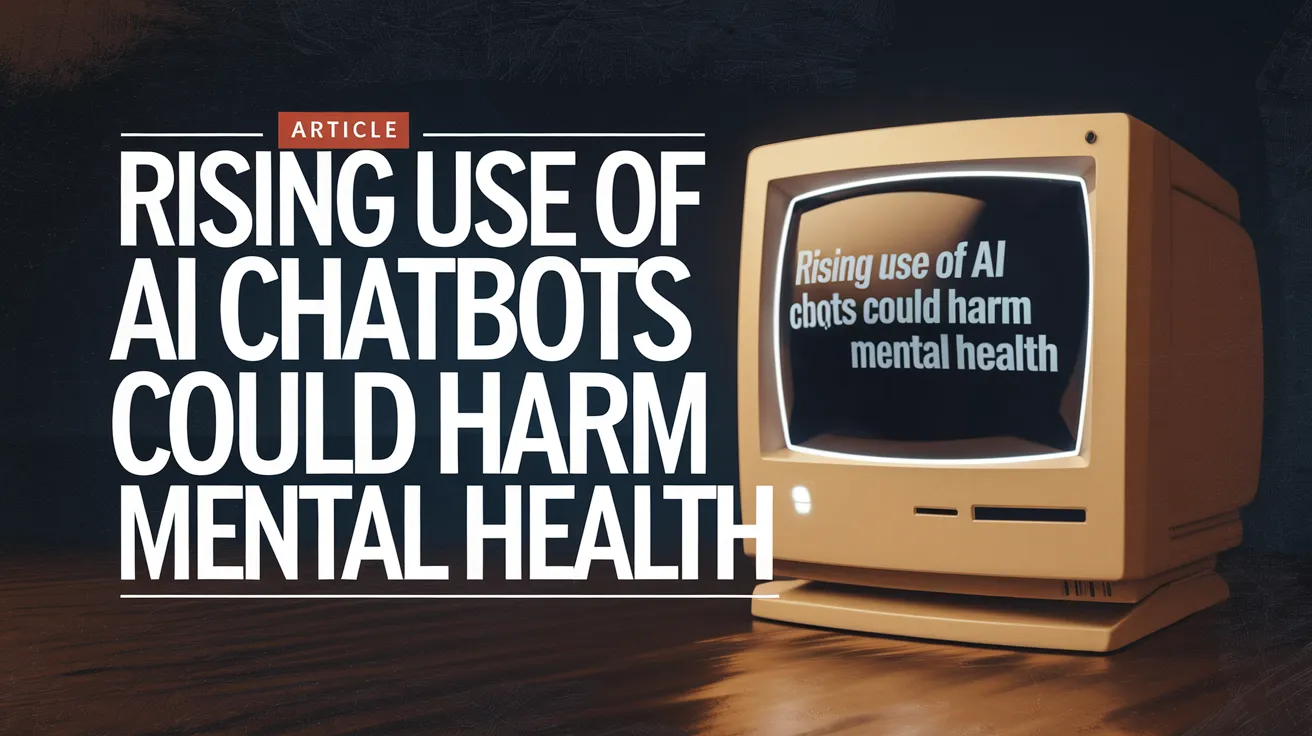Rising Use of AI Chatbots Could Harm Mental Health

Concerns are mounting among mental health professionals as more vulnerable individuals turn to AI chatbots for support, potentially ‘sliding into a dangerous abyss’, psychotherapists have warned. The use of AI for mental health assistance could lead to detrimental effects, including emotional dependence, heightened anxiety symptoms, self-diagnosis, and the amplification of delusional thoughts.
Rising Use of AI Technologies
Dr. Lisa Morrison Coulthard, who heads professional standards at the British Association for Counselling and Psychotherapy, indicated that over two-thirds of the organization’s members expressed apprehension about AI therapy in a recent survey. She stated: “Without proper understanding and oversight of AI therapy, we could be sliding into a dangerous abyss where vulnerable individuals are left uninformed about safety.”
Coulthard stresses that while AI may offer helpful advice to some, many others are at risk of receiving misleading or incorrect information about their mental health, which can have severe consequences. Therapy is not merely about giving advice; it’s about providing a safe space where individuals feel genuinely heard.
The Limitations of Chatbots
Dr. Paul Bradley, an adviser for the Royal College of Psychiatrists, echoed these warnings, noting that AI chatbots cannot replace professional mental health care or the essential rapport built between doctors and patients. He called for appropriate regulations to ensure digital tools enhance clinical care without supplanting human practitioners.
The apprehensions surrounding AI in mental healthcare have gained traction following a critical incident involving a teenager who, after communicating with a chatbot, tragically took his own life. In light of this incident, OpenAI announced modifications to its AI responses to individuals exhibiting signs of emotional distress.
Risks Associated with AI Chatbot Use
A recent report indicated that almost one in ten people have reported using AI chatbots for mental health support, despite indications that such interactions can sometimes lead to an emotional dependence. Some professionals caution that this reliance on AI for basic guidance can perpetuate cycles of distress rather than providing actual support.
For instance, psychotherapist Matt Hussey has observed clients bringing in transcripts from conversations with AI chatbots that contradict his professional insights. Hussey points out that while AI-generated advice may feel positive and affirming in the moment, it can reinforce inaccurate assumptions and hinder true engagement and understanding.
Seeking Balance with Technology
Christopher Rolls, a UKCP-accredited psychotherapist, expressed alarm over the inappropriate conversations some clients have had with chatbots, suggesting these unsupervised interactions can contribute to issues of anxiety and depression. He warns that the current state of AI chatbot use reflects an unpredictable frontier in a rapidly developing field, emphasizing the need for early interventions and transparency.
The complexities invoked by AI in mental health underscore the importance of balancing technological innovations with thorough understanding and ethical considerations. As society increasingly turns to AI for various facets of life, ensuring the mental health of individuals remains a priority is crucial to navigating this evolving landscape.
With AI chatbots becoming a more commonplace tool in support of mental health, significant discourse surrounding their role, effectiveness, and risks must continue as professionals fight to protect the sanctity of human interaction in therapy settings.